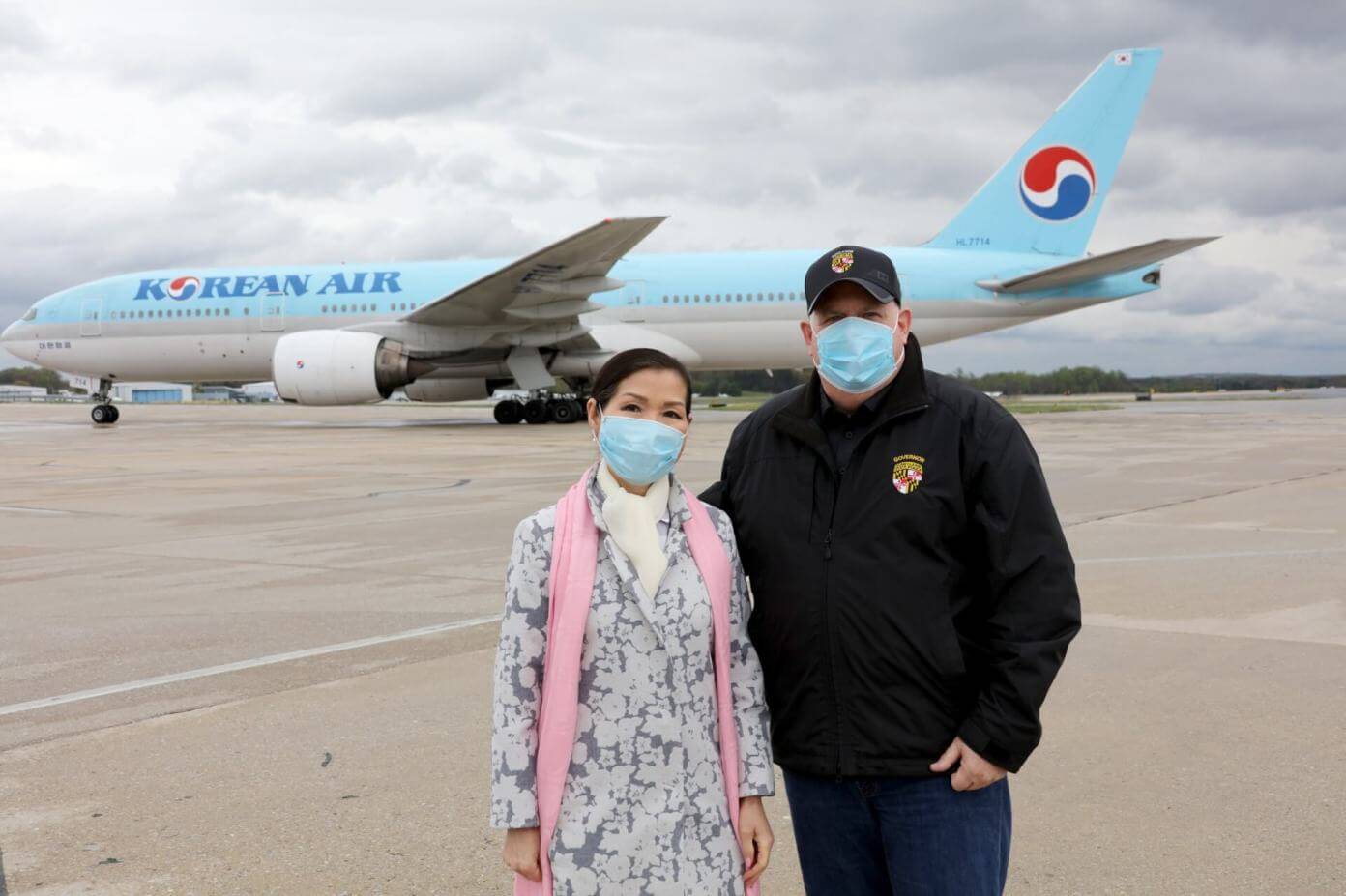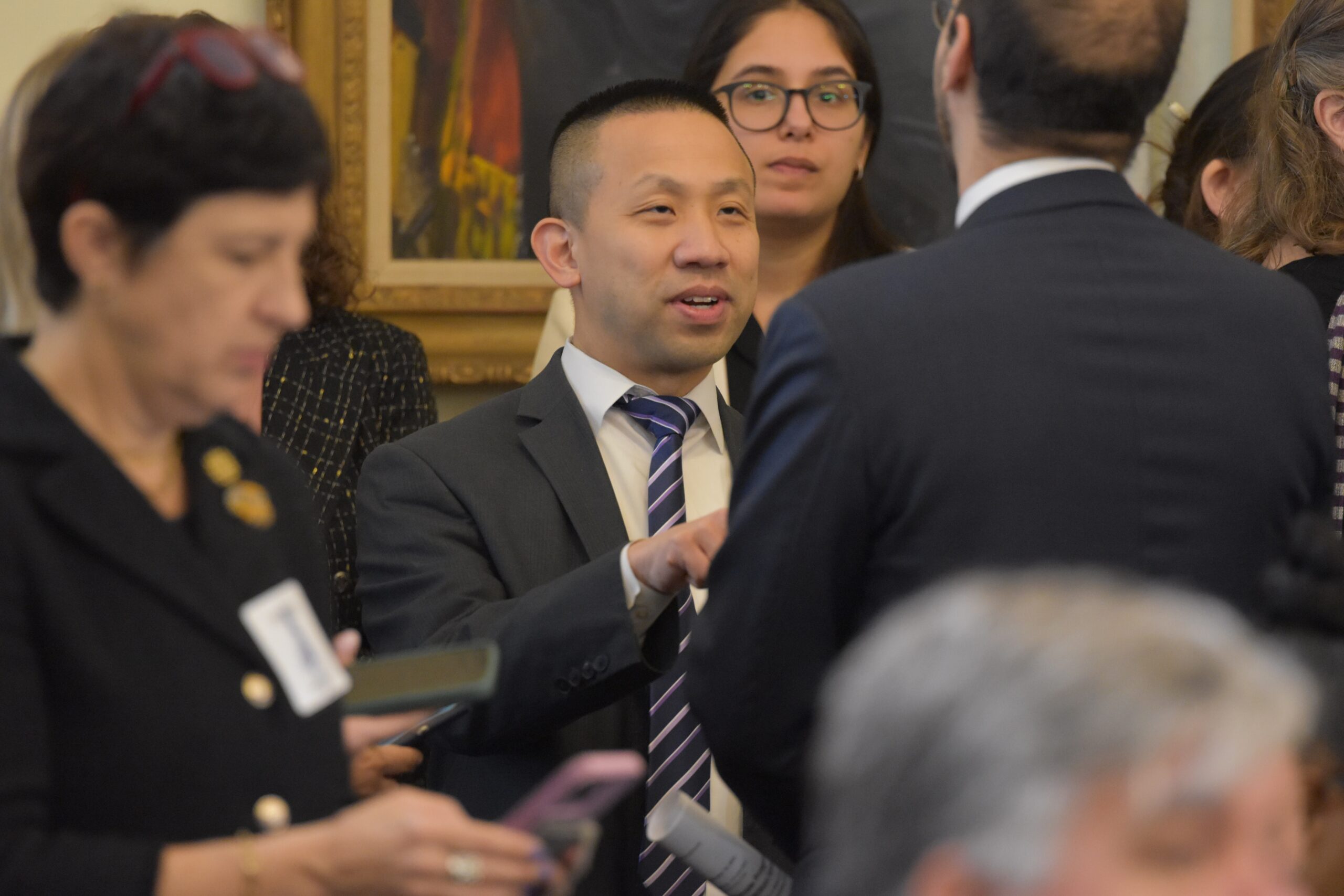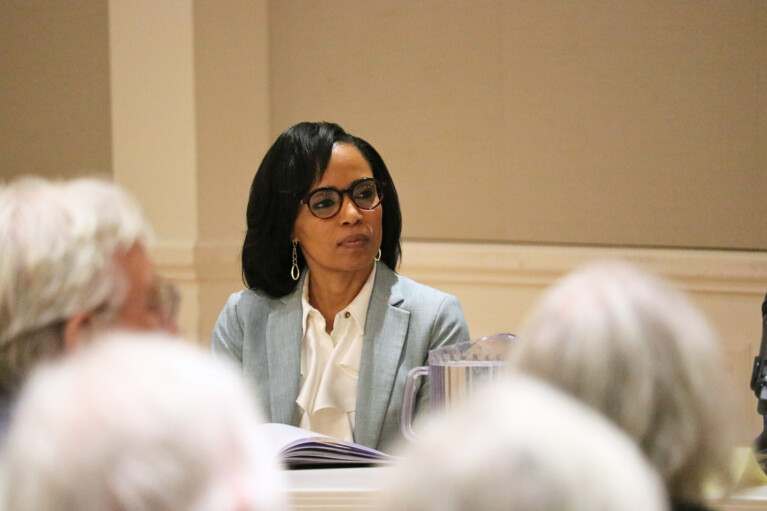Audit: Hogan Administration Spent $11.9 Million on South Korean COVID Tests

Maryland spent more than $11.9 million for 500,000 COVID-19 testing kits from South Korea during the early weeks of the pandemic, but a months-long legislative audit released Friday found no comprehensive contract for the purchase or the identity of the state employee who ultimately approved it.
In April 2020, to much fanfare, Gov. Lawrence J. Hogan Jr. (R) and first lady Yumi Hogan greeted a Korean Air cargo plane at BWI Thurgood Marshall Airport for the delivery of 500,000 test kits from South Korean company LabGenomics.
But nearly all of those tests were returned on June 23, and quietly replaced with a second batch of 500,000 tests at an additional cost of $2.5 million. The combined costs of the purchases, including shipping charges totaled $11,978,634, according to the report from the Office of Legislative Audits.
The audit also revealed that it cost the state $464,369 to charter the Korean Air flight for the delivery of the first batch of tests, which the administration defended as a reasonable cost during an unprecedented set of circumstances.
Auditors concluded that there were several procurement irregularities related to the tests, including no formal written contract and incomplete documentation to support LabGenomics as the best vendor for the purchase.
“The lack of a written contract and supporting documentation points to exactly why all procurements must follow State law and regulatory requirements — even during an emergency,” Sen. Clarence K. Lam (D-Howard), co-chair of the General Assembly’s Joint Audit and Evaluation Committee, said in a statement. “While the urgency to obtain tests were well intentioned, the rushed and opaque process led to so many subsequent problems that the tests went unused for many months.”
There is little agreement between legislative auditors and state officials about the probe’s conclusions. The Maryland Department of Health and the Department of General Services, in an eight-page response to the audit, called it “a rushed and politically-driven report implying dubious conclusions reached without regard to the actual circumstances surrounding the subjects of the Review.”
On the issue of a valid contract, the administration said an April 2, 2020 letter of intent between the state and a Virginia firm (JKICT) representing LabGenomics was a legally valid contract, while auditors said it lacked provisions required by statute, including any specifications or guarantees that the tests would work as intended or complied with U.S. Food and Drug Administration regulations.
The first delivery of LabGenomics tests were made after the company applied for emergency use authority with the FDA, but before final approval. The federal agency ultimately required the company to change the reagent material used in the kits, but not before they were shipped to Maryland.
The state’s letter of intent was executed on April 2; LabGenomics revised its application for emergency use authorization to update the reagent material the next day. Later in the month, on April 18 and 22, test kits were shipped from South Korea without the updated reagent material. The FDA ultimately issued authorization to the updated LabGenomics testing kits on April 29.
Lam said the state’s reliance on a letter of intent could be why the state received tests that did not conform with FDA requirements, and why the state had to pay more for replacement tests.
“The failure to require LabGenomics to provide the state with tests compliant with FDA requirements is a blunder that may have delayed access to testing during a critical time of the pandemic and cost taxpayers millions of dollars,” Lam said.
Legislative Auditor Gregory A. Hook wrote that the agency’s response served to underscore the correctness of the audit finding – such as the lack of a comprehensive contract – and still failed to answer key questions from auditors – such as who was ultimately responsible for making the decision to purchase the test kits.
Lam also criticized the initial arrival of tests at BWI as an expensive “photo-op,” while delivery of the replacement tests was kept quiet.
Auditors found that the replacement tests were shipped as air freight, at a total cost of $14,265. Lam said the second tests arrived with directions from state officials that there be no media or photographs of their delivery.
In its audit response, the Hogan administration wrote that it was a reasonable decision to purchase the tests before LabGenomics’ receipt of emergency use authorization given the scarcity of tests on the market.
“The simple truth is that the demand was so high in America and around the globe for test kits, that practically instant decisions had to be made with the best information available in an effort to ensure the State could properly respond to the ongoing threats to the health and safety of Maryland’s citizens,” the chiefs of staff at the Department of General Services and Department of Health, Eric T. Lomboy and Thomas C. Andrews, wrote in response to the audit.
Chartering a plane to deliver the initial tests was reasonable because cargo transport space was limited last spring during an unprecedented decline in air travel. Officials were also concerned about reports from at least six states where deliveries of emergency medical supplies had been commandeered by the federal government.
There were also concerns about the accuracy of the second tests, including the potential for false-positive results.
The Maryland Department of Health reviewed concerns about the test results and noted deficiencies with the lab procedures, but did not determine whether there was an underlying issue with the tests.
Auditors tried to review unredacted test results from various labs owned or contracted by the state to determine the reliability of the tests and whether all of the test kits were used, but those records were initially denied and are not included in the report.
In response, the administration said it turned over testing information redacting patient information, and that the Office of the Attorney General had to step in to determine whether patient information could be released to auditors.
Auditors said they plan to release a review of expanded testing records in a future report.
Auditors said the information they received did not show whether all of the South Korean kits were ultimately used, though Hogan announced that they had been on Dec. 15.
“No centralized records of tests distributed and/or used was maintained by MDH,” auditors wrote.
The audit also covered the termination of two state employees after they raised concerns related to the COVID tests: a former director of student health services at Towson University, who expressed concern that flawed false-positive test results created the illusion of an “outbreak” on campus, and Dana L. Dembrow, the state health department’s procurement chief, who said he was forced out of the position after asking questions about the tests.
State officials insisted the terminations were due solely to unrelated performance issues, but auditors said those conclusions were not supported by written documentation in the employees’ personnel files.
The audit was relatively narrow in scope, with auditors writing that probes into other emergency procurements – including purchases from Blue Flame Medical, a politically connected company – will be included in separate reports.
A bill sponsored by Del. Kirill Reznik (D-Montgomery) to reform emergency procurements by requiring additional approvals by the state’s chief procurement officer, or – in the case of emergency contracts over $1 million – the Board of Public Works, passed the House of Delegates last month. Lam sponsored the cross-filed Senate bill, which has not been voted on by the Education, Health and Environmental Affairs Committee.




 Creative Commons Attribution
Creative Commons Attribution